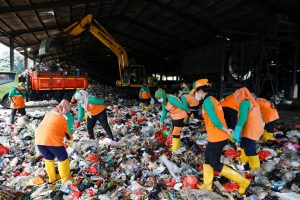THE GOVERNMENT needs to improve the country’s waste management infrastructure to help companies execute their sustainability initiatives, food packaging solutions company Tetra Pak said.
“The government plays a key role in creating an environment where circularity can thrive,” the company told BusinessWorld in an e-mail.
“An important area is infrastructure — from improving collection and segregation facilities to supporting transport networks that make recycling more efficient, especially in areas outside major cities — followed by enforcement of such processes to ensure the outcome is maximized,” it added.
Compared to its regional counterparts, the Philippines is still developing the systems that support large-scale recycling.
“Unlike some neighboring countries where infrastructure is more centralized, the Philippines’ archipelagic setup means we need stronger local partnerships to connect collection points, recyclers, and communities,” Tetra Pak said.
“That’s why collaboration is at the heart of how we operate here — it’s the only way to build reach across islands and regions,” it added.
In its sustainability report for 2024, Tetra Pak said there has been a 25% reduction of greenhouse gas (GHG) emissions across its value chain since 2019.
Within its operations, the company achieved a 54% reduction in GHG emissions since 2019, while it is targeting net-zero GHG emissions by 2030.
Meanwhile, the company said that the government could also help companies in their sustainability initiatives through data and coordination.
“Consistent waste-management data across local government units allows us to see where cartons are being recovered and where we need to build new capacity,” it said.
“We’re ready to share our learnings with local governments that want to integrate carton recycling into their solid-waste programs,” it added.
According to Tetra Pak, the direction for packaging materials today is to increase renewable content while lowering the carbon footprint.
“Consumers are hyperaware enough to take action and lead in finding improvements and solutions based on a study commissioned by Tetra Pak in 2023,” it said.
“With this strong pull, food & beverage companies as well as packaging companies will need to secure the sustainable architecture of their product offerings,” it added. — Justine Irish D. Tabile
